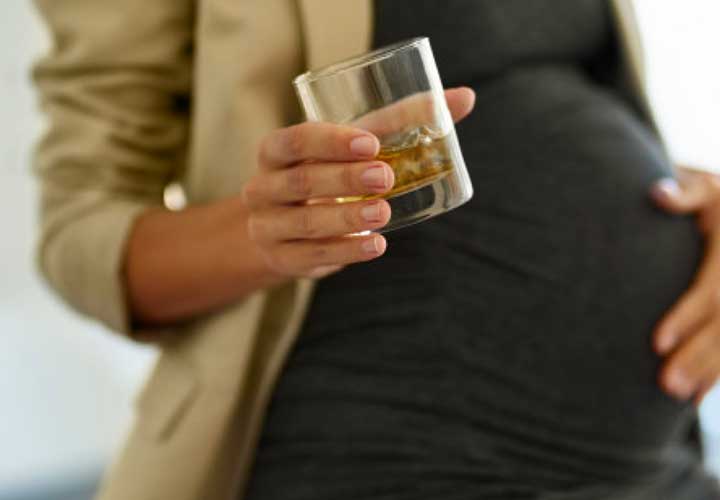Indiscriminate use of prescription drugs can lead to birth defects. It is important that you check with your care giver before you ingest any prescription drug. Abuse of drugs can be harmful. In poor areas of sub-Saharan Africa, individuals are of the habit of indiscriminately using antibiotics because they lack the financial means to visit proper clinics. Some of the antibiotics are not safe for pregnancy, some are however safe for usage.
Herbal preparations are unpredictable. Herbal preparations that the components are not known are particularly notorious because some of them can cause gastrointestinal symptoms such as diarrhea and in some cases miscarriage.
There are however some safe herbal teas that are known to improve in symptoms such as nausea and vomiting. The beauty of these herbal teas is that their constituents are known and documented.
Alcohol intake in significant amounts can increase the risk of miscarriage. It is also associated with birth defects with associated facial abnormalities and abnormalities of the nervous system. Babies born to mothers who are alcoholic can have problem with growth and development and fail to thrive.
Smoking is associated with increased risk of miscarriage by preventing the developing embryo form implanting into the womb (uterus). Smoking also compromises the supply of oxygen to the embryo. Smokers are more at risk of having premature delivery and premature separation of the placenta a condition known as placenta abruption.
The sad aspect of smoking is that does who don’t smoke but are exposed to smoke probably from their husbands and close relatives are also at risk of all these complications mentioned above.
The implication is that if you live with somebody that smokes, you should advice the person to stop smoking or avoid living in the same environment with that person.
Recreational drugs: Recreational drugs are also referred to as hard drugs and include drugs like marijuana, cocaine, heroin ecstasy etc. They are associated with increased complication in pregnancy such as miscarriage, poor growth of the baby, premature delivery and premature separation of the placenta. They cross the placenta and cause damage to the brain of the baby at birth. They are completely discouraged in pregnancy and outside pregnancy. There are other chemical substances or agents in the environment that one should be cautious of. There is however no strong evidence to support or refute any claim to ill effect caused by this chemical substances. The bottom line is that these substances have to be inhaled in considerable amount or the pregnant woman has to be exposed to them for long duration for them to have any significant harmful effect. Some of the substances include vapor from petrol, glue, cleaning fluids, volatile paints, and household aerosols.
Work-place chemicals that are fat soluble such as pesticides, cleaning agents and some adhesives are capable of crossing the placenta and can be harmful to the pregnant woman. They are better avoided.
Exposure to large doses of x-ray radiation can cause harmful effect to the baby during the first trimester. X-rays are generally not encouraged in the first trimester but the doses of x-ray radiation emitted by modern machines are quite small and may not have any significant ill-effect.
Serial ultrasound scans does not have any negative effect on the fetus. Several studies have been done that has so far demonstrated that ultrasound is safe and without complication. The transvaginal probe that is useful in detecting early pregnancy complications is safe and does not cause miscarriage as erroneously thought by some pregnant women.
Exposure to disease causing agents at this stage of development may or may not affect the development of the baby. It depends on the type of organism involved, the severity of the disease process and the immune status of the mother. The common cold is not infrequent in pregnancy and is mostly associated with rhinorrhoea (catarrh/cough) but it is mostly innocuous and does not have any significant negative effect on the developing baby.

